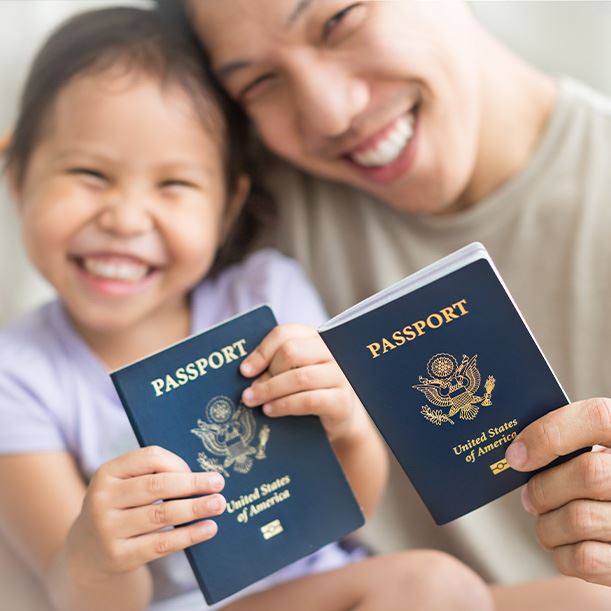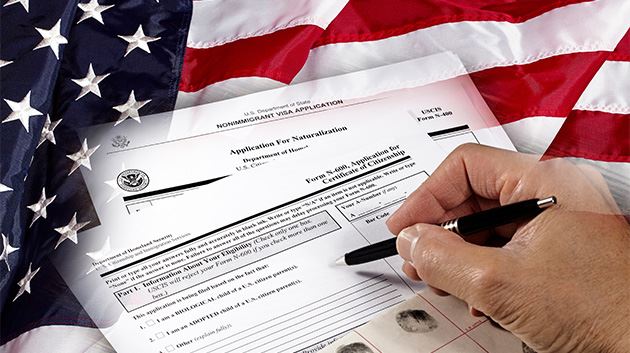
Business Immigration in Maryland: Understanding PERM Labor Certification
Sometimes U.S. companies have positions where finding qualified applicants is difficult, but to grow their business, these positions must be filled. The best and often advantageous way is through hiring foreign workers qualified for the job. Fortunately, the U.S. immigration system offers a solution, and part of this solution is the PERM process. PERM is the first step these companies must take before certain foreign nationals can obtain an employment-based immigrant visa. Challenges, misunderstandings, and inadvertent errors, however, can delay the process. As a business owner, you already know that more delays cost you in terms of profit and pretty much everything else.
At Zenith Law Firm, our business immigration lawyer based in Maryland has a thorough working understanding of the PERM process and the entire immigration system. We help business clients get the employees they need to develop and grow their businesses.
Contact us today at (240) 652-2557 to schedule a consultation.
The Labor Certification PERM Process in the United States
If a U.S. employer wants to sponsor a foreign national to work for them, certain employment-based visas require an approved labor certification from the Department of Labor (DOL).
An approved labor certification confirms that:
- There are insufficient qualified and willing U.S. workers to fill the position; and
- Hiring a foreign worker will not negatively impact the wages or working conditions of U.S. workers in similar roles.
Labor certification is the first step in sponsoring a foreign worker—it does not authorize the foreign worker to live and work in the United States. If a labor certification is approved, the employer needs to apply for an immigrant visa before a foreign worker can apply for a green card.
The labor certification process is known as PERM, which stands for Program Electronic Review Management. It is the online system employers use to apply for permanent labor certification. The whole process can take up to 18 months, and much of that time is spent ensuring no qualified workers are available in the United States.
The PERM / Labor Certification Process
To apply for labor certification, an employer must:
- Prepare a job description. The job description outlines the duties and minimum requirements of the role. This must be done carefully, as not only does the foreign worker need to fulfill these requirements, but an employer cannot obtain an approved labor certification if a U.S. worker who meets the requirements applies for the role. On the one hand, you want strict minimum requirements for the position because you do not want loose guidelines that would qualify too large a pool of applicants. On the other hand, you do not want the description too strict, or else the DOL might determine you are too restrictive purposefully so that you can sponsor the foreign worker rather than hire a U.S. worker. It is a delicate balance to be reached.
- Obtain a prevailing wage determination from the DOL. This determination confirms the wage for the specific role and location. At a minimum, employers must pay the foreign worker the prevailing wage.
- Take “good faith” steps to recruit a U.S. worker for the role. To do this, an employer must undertake a series of recruitment activities including advertising the position via the relevant state workforce agency and newspaper advertisements.
- File a Form ETA 9089. This form, which is the Application for Permanent Employment Certification with the DOL, details the minimum requirements of the position, recruitment process, and foreign worker's details, among other information.
This process is onerous on employers and involves strict timeframes that must be closely followed.
Outcome of the PERM process
The DOL can approve or deny the application or audit it by requesting further information or evidence.
If a labor certification is approved, the employer then files a Form I-140, Immigrant Petition for Alien Workers with U.S. Citizenship and Immigration Services (USCIS) to request a visa for the foreign worker. Permanent labor certifications expire after 180 days, so an employer must apply to USCIS within this time.
Once USCIS approves the petition, the employee can apply for a green card.

Contact a Business Immigration Lawyer in Maryland Today
PERM Labor Certification is complicated and time-sensitive. Mistakes can create delays or denied applications. If you want to make sure you get the right employees for your business, contact us if getting those employees means sponsoring a foreign national.
At Zenith Law Firm, our employment-based immigration attorney based in Landover will use their experience and expertise to provide the highest quality immigration services for your PERM case.
Contact us today by completing the online form or calling us at (240) 652-2557 to schedule a consultation.
What Professions Qualify for Labor Certification?
It is not necessarily about the profession but the visa type that requires labor certification through the PERM process. Only certain employment-based visas require labor certification.
EB-2
This employment-based, second-preference visa is for individuals with an advanced degree or equivalent (bachelor's degree and five years experience) or with exceptional ability in the arts, sciences, or business.
Exceptional ability describes “a degree of expertise significantly above that ordinarily encountered” and may include actors, doctors, veterinarians, musicians, or lawyers.
EB-3
This employment-based, third-preference visa is for:
- Professionals who hold a bachelor's degree or foreign equivalent, which is a normal requirement to work in the role––for example, teachers.
- Skilled workers whose jobs require at least two years of training or work experience, like graphic designers and journalists.
- Other workers performing unskilled labor that requires less than two years of training or experience, like maintenance workers, janitors, and nannies. It does not include jobs of a temporary or seasonal nature.
Immigration Categories that Do Not Require Labor Certification
Though EB-2 and EB-3 visas require labor certification, most employment-based visas do not require it, and this includes:
- EB-1, which are employment-based, first-preference visas for foreign nationals with extraordinary abilities, outstanding researchers or professors, and intracompany managers or executives
- EB-4, which are employment-based, fourth-preference visas for special immigrants, like religious workers
- EB-5, which are employment-based, fifth-preference visas for foreign entrepreneurs/investors
Labor certification is also not required for workers who migrate to the United States via family-based immigration petitions, are the beneficiaries of National Interest Waivers (NIW), or are immigration applications qualifying for Schedule A occupations, like physical therapists, professional nurses, scientists, and artists.
What Happens When the USCIS Issues a Request for Evidence?
Our Clients Come First
Reviews and Testimonials
-
"It was a miracle"
I referred my friend to them and they won his asylum, my friend told me it was a miracle. I am also happy they just got a good result for my green card. I will recommend them to everyone looking for immigration services
- Omolara S. -
"They are the best!"I highly recommend Zenith Law Firm to anyone seeking legal immigration advice, assistance and representation from a team of very knowledgeable, experienced and dedicated attorneys. Mr. Jacob and Mrs. Sandrine both provided their excellent services, which resulted in the approval of my petition so much faster than I anticipated. They are the best!- Joseph B.
-
"Very good experience with them"
The service from Zenith Law Firm is exceptional, and would recommend it at all times without hesitation . I have a very good experience with them . Thanks for your excellent service.
- Celedonia B. -
"A lovely consultation meeting!"A lovely consultation meeting! I arrived early and the team was ready to greet me - something I truly appreciate; the considered my time and were ready in advance. I enjoyed meeting a casual seating arrangement. Everything felt cozy, low stakes, low pressure! Most importantly, this team is SO KIND! So understanding and very very informative! Looking forward to working with them!- Bataul A.
-
"I highly recommend"I referred a friend to Zenith Law firm for assistance with his asylum application, and we were incredibly impressed with their expertise and dedication. Thanks to their diligent work, my friend’s application was accepted. I highly recommend Zenith Law Firm for their exceptional service and commitment to their clients. Thanks Barrister, Sandrine and the team- Buzzy K.
-
"Knowledgeable and easy to talk to"
I am happy I met Jacob and Sandrine for my immigration case. They are knowledgeable and easy to talk to. I am happy they won my difficult case. I will always recommend them.
- Tamir A. -
"Professional and knowledgeable"Grateful. They Are professional and knowlegeable. Happy because they speak french. M’y freind told me about them and i am happy i found them. I was previously working with a lawyer i could not talk to. They communicate so well.- Fode D.
-
"Thank you Zenith Law Firm"
My citizen was denied and I came to them for to apply for N-336. I don’t know what they did, my case was reopen and approved. They just called me for a swearing in. Thank you zenith law firm
- Jibba E.


Why Choose Zenith Law Firm?
-
Your Life, Our PriorityWe don't just see your case; we see your life. We approach each case with a profound sense of responsibility, recognizing the impact it has on your future.
-
Clear CommunicationWe believe in keeping you informed every step of the way with transparent and easily understandable communication.
-
Collaborative ApproachYour input matters. We work closely with you, valuing your perspective and goals as we navigate your case together.
-
Unique InsightGrounded in Attorney Udondom's own immigration experience, we approach each case with profound empathy and compassion.


